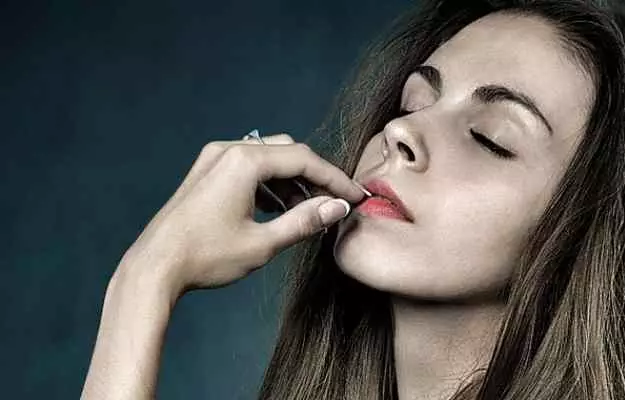Since it is a nervous and mostly involuntary gesture, quitting nail biting is not as easy as it seems. It requires strict management including behavioural and psychotherapy approaches along with putting physical barriers over fingernails to break this habit. But the most important factor for a successful treatment is patient education. Until or unless the individual is not motivated, no therapy can promise a positive outcome.
The person has to be aware of their habit, its impact on health and psychology and he/she should be interested in giving up the habit. Immediate family and friends also play an important role as support, especially in the case of children. Punishment or laughing may make them more stressed or nervous and increase the problem. You can also take professional help if all other measures fail. There are experts who can aid you in managing habit disorders and quitting nail biting easily.
However, you would still be the one who will have to take the first step. To make it easy for you, here are some easy ways you can try at home to get rid of your nail biting habit.
Trim and file your nails: Try to keep your nails trimmed and filed. The less the amount of nail available for biting, the less you get tempted to bite on it. On the plus side, it will also make your hands look neat and well cared for. Short nails don’t really accumulate as much dust either. This reduces the chances of bacterial growth and infections.
Apply nail paint: Nail paints could make your hands look really attractive but they can also help you quit your nail biting habit. Surely, you wouldn’t want to chew on harmful chemicals right? If normal nail paints don’t help, you can buy specialised nail paints that are made to help with nail biting and thumb sucking habits. These are made from non-toxic chemicals but have a bitter taste that is enough to give a good shock to your taste buds every time you put your nail into your mouth, so you subconsciously start to keep away from chewing them.
Manicure: Develop a habit of regular manicure, this way your nails will look attractive and beautiful. Probably you will decrease the frequency of biting as nobody wants to let go of the money in vain by biting well-manicured nails. A manicure will also help improve your nail health and make them look shinier and healthier so you could enjoy shapely nails for once! Not much to give up for so many perks.
Cover your nail: If all else fails, just cover your bitten nails with tapes, stickers or bandages to make you remember to quit every time you try to put your nails between your teeth. You can also wear gloves to avoid exposure of nails and prevent from biting them.
Replace nail biting habit with a good habit: The American Association of Dermatology recommends to switch to some good habits when you feel like you are going to bite your nails like playing with a stress ball or putty balls. The idea behind this is to keep your hands busy so that it does not go inside your mouth. It will also help relieve stress, which more often than not is one of the major triggers for nail biting.
Identification of triggering agents: You have to put every effort if you genuinely want to come out of this bad habit. Try to notice what triggers you to bite your nails. This might vary from person to person and situation to situation. It can be a physical stimulus like hangnails or ingrown nails or mental stimuli like boredom, loneliness, stress or anxiety. When you know what is your trigger, you will act in a planned way to stop the trigger transforming into a nail-biting action or might just keep yourself distant from triggers as much as possible.
Recognizing the specific times when you tend to bite your nails may also help in counteracting it.
Start slowly, act gradually: Be patient with yourself. Nail biting is a stress reflex or a subconscious habit, it is not going to go in a single day. Professionals suggest a slow, gradual but regular approach to get rid of this habit. Take one step at a time, start with one nail like a thumbnail on day one, then to the next group of nails a few days later. Your ultimate goal should be to discard the habit completely.
Counsel your child: It has been seen that children develop this habit when they have fights with friends or disturbance in school. If your kid is indulged in a habit of nail-biting, talk to them to solve their problem before it gets seated in their psychology.





























